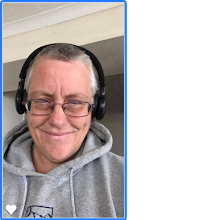I’m sat in Café Nero in Fforestfach. I’m drinking coffee and
blogging.
I’m watching people sat alone, reading papers, staring into
the distance, doing paperwork. I can see the couples sat in silence, and the
couples talking. I can see the women in the window seats glued to their smart
phones.
Usually, but not today, I watch a group of mothers laughing
together with babies in prams, or a group of older women
Earlier today I was part of a talking couple, catching up
with my husband. And then we got talking about ‘coffee shop conversations’.
That’s something I do in coffee shops as part of Barod, but
not today. And it’s something I’m researching for a PhD.
Imagine, the group of mothers get talking about the local
maternity service. A fly on the wall would have a field day learning by
listening to them. The fly would hear all sorts of things that weren’t said at
the formal consultation on the future of that service.
I did listen in to one of those conversations a few years
ago in Holyhead. That’s when I realised what a wealth of problem-solving,
insightful knowledge exists which policy makers and service managers don’t tap
into.
And the idea for ‘coffee shop conversations’ was born.
It’s a method that lets policy makers learn from members of
the public who ‘don’t do engagement’. It’s a method that lets members of public
use their voice – you’d be amazed how many wish there was a magic way for
‘important people’ to know what life is like for them without them having to go
to a public meeting or fill in a questionnaire. It’s a method that costs very
little. And from past experience, it’s a method that leads to a wider group of
people taking an interest in public life.
If you want to know what the method involves, how it works
and to see one in action, come along on Tuesday 20th September to
the Swansea Behaviour Change Festival


Comments
Post a Comment